
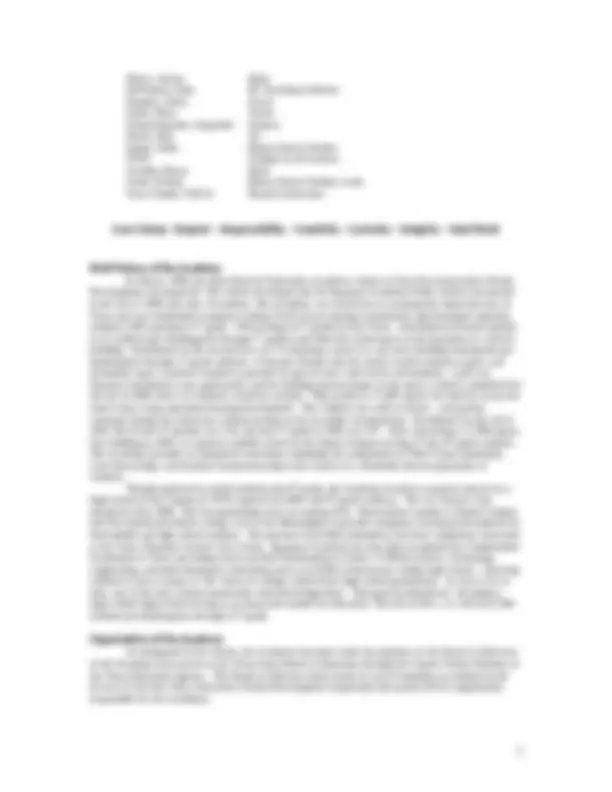
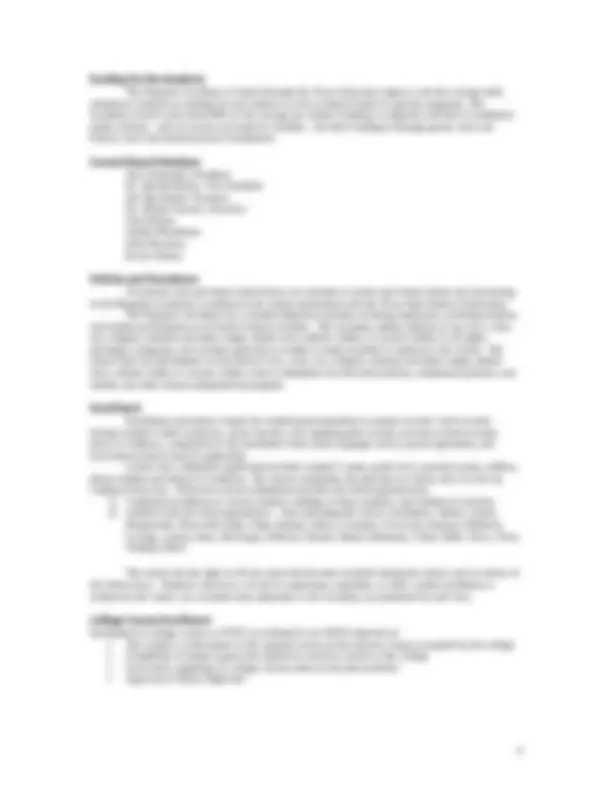
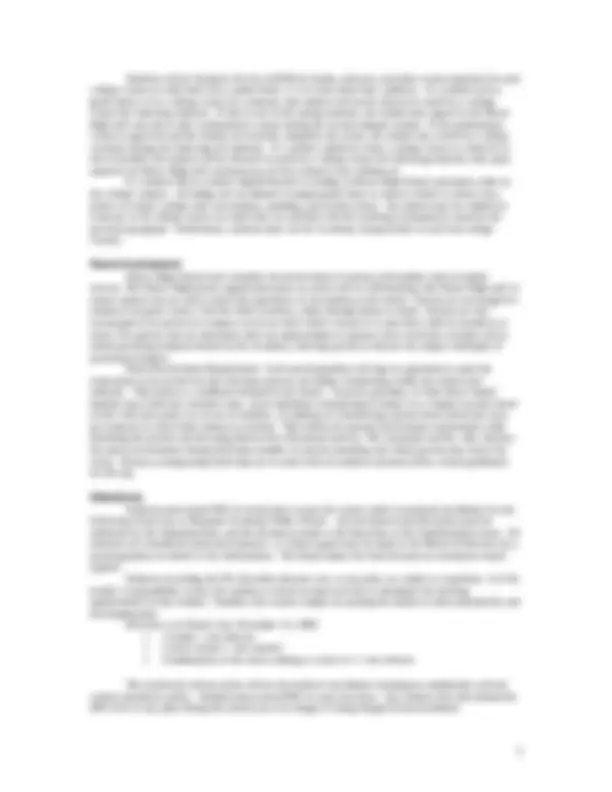
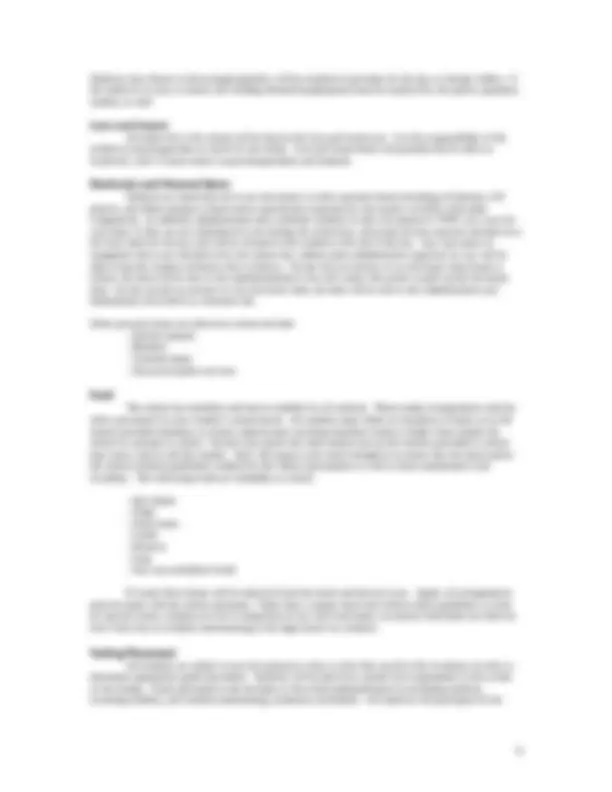
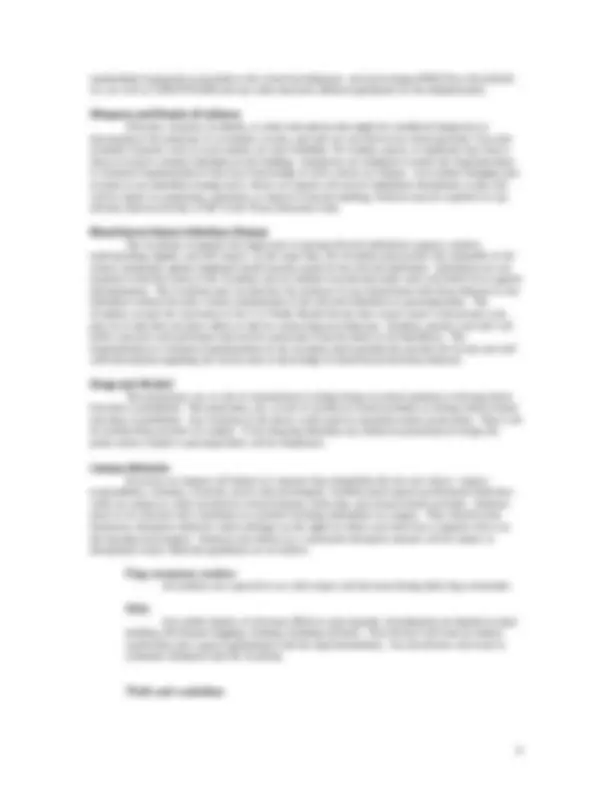
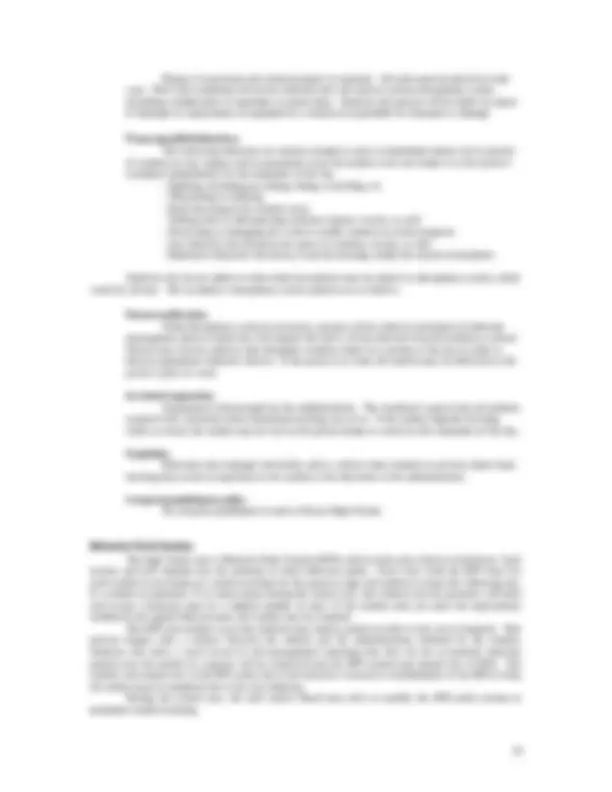
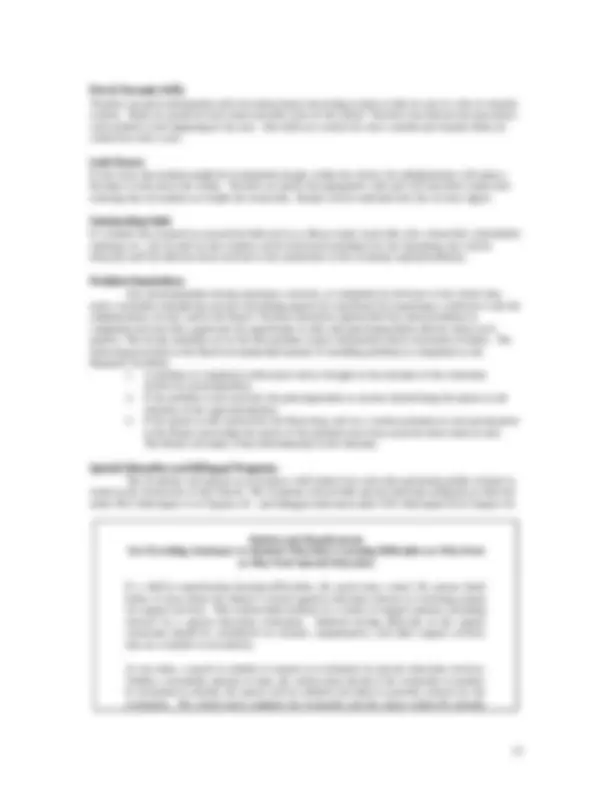
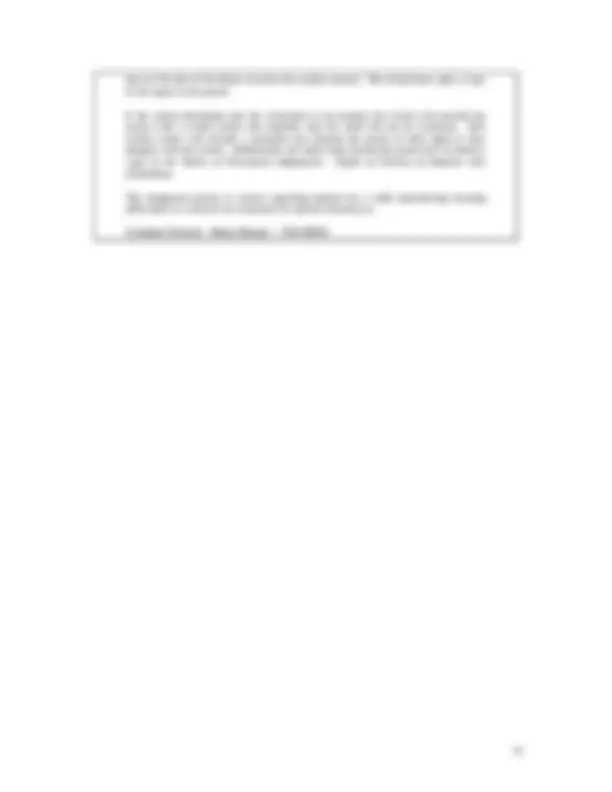


Study with the several resources on Docsity

Earn points by helping other students or get them with a premium plan


Prepare for your exams
Study with the several resources on Docsity

Earn points to download
Earn points by helping other students or get them with a premium plan
Community
Ask the community for help and clear up your study doubts
Discover the best universities in your country according to Docsity users
Free resources
Download our free guides on studying techniques, anxiety management strategies, and thesis advice from Docsity tutors
Rapoport academy public school is a premier educational model that sets high expectations and involves family and community to prepare students for college, career, and life. The vision statement, admission process, attendance policy, dress code, electronics usage, and behavior policies of the academy. It also covers health and safety procedures, medication administration, and the consequences of misconduct.
Typology: Study notes
1 / 14

This page cannot be seen from the preview
Don't miss anything!









The Rapoport Academy Public School fosters learning that exceeds national and state standards through rigorous academics, evidence-based practices, and real world experiences. We prepare students for college, career, and life by setting high expectations, modeling core values, and involving family and community.
As a premier educational model, Rapoport Academy Public School will continue innovating best practices to ensure students develop confidence, character, knowledge, and skills to reach their full potential, discover their passions, embrace diversity, and become independent thinkers.
Bukowski, Phil Bookkeeper Bukowski, Terri Counseling Services Burrus, Tanisha Logistics Coordinator Davis, Lori District RTI DuShane, Dora Front Desk Elliott, Dean Technology Director Franks, Heather District Master Teacher Gould, Jared Dean of Students Grayson, Dr. Nancy Master Teacher Howard, Shannon College Coordinator Luo, Roger PEIMS system Mynar, Mary Special Education Director Neumann, Dr. Alexi. Superintendent 1/ Polk, Dr. Matthew Superintendent 1/ Reed, Gaylene Institutional Development Director Spratt, Charlene Food Services Director Strickland, April Head of Financial Team
Barak, Kelly Coach Beckham, Gil Coach Bukowski, Terri Health, Online Course Supervisor Butler, Susan Spanish Corkill, David History, Music Curry, Jessica English Daly, Nora Special Education, Master Tutor Diamond, Patricia Sciences/Engineering Fucci, Megan Sciences/Engineering Gould, Jared Speech, Coach Gadge, Uma Math Grayson, Nancy Psychology Hankins, Natalie English
The Rapoport Academy is funded through the Texas Education Agency with the average daily attendance formula accounting for each student as well as federal funds for specific programs. The Academy receives only about 80% of the average per student funding as compared with that of traditional public schools – and we receive no funds for facilities. All other funding is through grants: state and federal, local and national private foundations.
Trey Schneider, President Dr. Harold Rafuse, Vice President Jeff Burchfield, Treasurer Dr. Dianne Sawyer, Secretary Clif Dollens Ashley Henderson Ellie Morrison Kevin Wilson
All policies and procedures listed below are intended to clarify and further define the functioning of the Rapoport Academy as outlined in the charter maintained with the Texas State Board of Education. The Rapoport Academy has a nondiscriminatory position on hiring employees, enrolling students, and student participation in all school-related activities. The Academy admits students of any race, color, sex, religion, national and ethnic origin, ability level, athletic ability, or creative ability to all rights, privileges, programs, and activities generally accorded or made available to students at the school. The school does not discriminate on the basis of race, color, sex, religion, national and ethnic origin, ability level, athletic ability or creative ability when it administers its education policies, admissions policies, and athletic and other school-administered programs.
Enrollment procedures require the student/parent/guardian to present records. Such records include student’s birth certificate, social security card, immunization records, previous school records, proof of residence, completion of the enrollment form, home language survey, parent agreement, and free/reduced lunch form (if applicable). Lottery draw admission application includes student’s name, grade level, parent(s) name, address, phone number and district of residence. The charter establishes the time line for lottery draw for the up- coming school year. Preference toward admissions includes the following hierarchy:
Enrollment in college courses at TSTC (as outlined in our MOU) depends on: The student’s achievement of the required scores on the entrance exam as required by the college Completion of proper paperwork required to enroll in courses at the college Successful completion of college courses taken in the prior semester Approval of Meyer High staff
Students will be charged a flat fee of $100 for books, software, and other course materials for each college course in which they earn a grade below a C or from which they withdraw. If a student earns a grade below C in a college course in a semester, that student will not be allowed to enroll in a college course the following semester. If this occurs in the spring semester, the student may appeal to the Meyer High staff and ask to take a probationary course during the second summer session. If the probationary course is approved and the student successfully completes the course, the student may enroll in a college course(s) during the following fall semester. If a student withdraws from a college course in which he or she is enrolled, the student will be allowed to enroll in a college course the following semester only upon approval by Meyer High staff and must pay all fees related to the withdrawal. If a student fails to conduct himself/herself according to Meyer High School principles while on the college campus – including, but not limited to inappropriate dress or speech, failure to attend class, failure to respect college staff and students, smoking, and alcohol abuse – the student may be withdrawn from any or all college courses in which they are enrolled with the resulting consequences stated in the previous paragraph. Furthermore, students must use the Academy transportation to and from college courses.
Meyer High School staff considers the involvement of parents and families vital to student success. The Meyer High parent organization plays an active role in collaborating with Meyer High staff to ensure student success and to enrich the experience of all students at the school. Parents are encouraged to remain in frequent contact with the child’s teachers, either through phone or email. Parents are also encouraged to be present on campus to sit in on their child’s classes or to join their child for breakfast or lunch. For parents who are interested, there are opportunities to sponsor extra-curricular activities and to attend parenting seminars hosted by the Academy, allowing parents to discuss the unique challenges of parenting teenagers. Parent Involvement Requirement: Each parent/guardian will sign an agreement to meet the expectation to be involved in the education process, including volunteering within the school each semester. This follows a conditions outlined in the charter. A parent, guardian, or other direct family member may fulfill the volunteer time. Each individual volunteering is subject to a criminal records check in line with state policy for access to children. In addition to volunteering, parents must attend one class per semester in which their student is enrolled. This fulfills the parental involvement requirement while informing the parents and investing them in the educational process. The classroom teacher, only, dictates the parent involvement during field trips (number of parents attending and which parents may escort the class). Parents accompanying field trips are to assist with all students and must follow school guidelines for the trip.
Students must attend 90% of school days to pass the course and/or to maintain enrollment for the following school year at Rapoport Academy Public School. Any deviation from this policy must be addressed by the Administration, and the decision is made at the discretion of the Superintendent team. All absences are considered unexcused absences. A written appeal may be made to the Board of Directors by a parent/guardian on behalf of the child/student. The Board makes the final decision on attendance-based appeals. Students exceeding the 0% allowable absentee rate, at any point, are subject to expulsion. It is the family’s responsibility to have the student at school on time each day to maximize the learning opportunities for that student. Families who cannot comply are putting the student at risk academically and developmentally. Effective as of Board vote, November 15, 1999: 3 tardies = one absence 3 early releases = one absence Combinations of the above adding to a total of 3 = one absence The tardy/early release policy affects the student’s enrollment standing in combination with the current attendance policy. Students must attend 90% of total class days. Any student who falls behind the 90% level at any point during the school year is in danger of being dropped from enrollment.
Students must give all medications to school personnel in charge of medications so that it can be secured until administered. Students must fill out a medication administration form that must also be signed by the parent/guardian. Any medications not picked up by the end of the spring semester will be disposed of. We are not responsible for storing medications over the summer.
The dress code at the high school encourages students to maintain good standards of dress and wear washable clothing that is comfortable for the day’s activities and is suitable for encouraging appropriate learning behaviors. Students are expected to be dressed appropriately for the weather since the Academy encourages fresh-air, out-door activity and active learning. Students must dress appropriately so that clothing is neither revealing nor detracts from learning. Any dress that is too revealing, interferes with learning, or disrupts the learning atmosphere shall be considered inappropriate. Inappropriate clothing is detailed as follows: All clothing -Must be modest -No suggestive or inappropriate messages -Must not be thin or see-through -No holes in revealing areas Shirts -Must not show midriff -No spaghetti straps -No low necklines Skirts -May not be rolled at the waist -Must be modest in length -Must not reveal undergarments Pants and slacks -Must fit properly -May not be worn below the waist or sagging -Should be worn with a belt when necessary -No low waist pants -No pajama bottoms Footwear -Must be worn at all times -Must be properly tied and strapped Outerwear -No hats, caps, bandanas, or other headgear -Coats may not be worn indoors and must be stored in the proper place until the student goes outdoors Personal appearance -Must not distract from learning -No excessive jewelry or accessories -No excessive make-up Undergarments -Must be completely covered by clothing and not visible -Well-developed girls must wear bras or comparable undergarments
Students who choose to dress inappropriately will be required to go home for the day or change clothes. If the student is to stay at school, the clothing deemed inappropriate must be replaced by the parent, guardian, student, or staff.
All items left at the school will be kept in the lost-and-found area. It is the responsibility of the student or parent/guardian to check for lost items. Lost and found items will periodically be taken to Goodwill, with 72 hours notice to parents/guardians and students.
Students are requested not to use electronics or other personal items including cell phones, CD players, and iPods during at school unless specifically requested by the teacher to fulfill curriculum components. In addition, administration may authorize students to take cell phones to TSTC on a case-by- case basis. If they are not authorized for use during the school day, electronic devices must be checked in at the front desk for the day and will be returned to the student at the end of the day. Any such piece of equipment that is not checked in for the school day without prior administrative approval for use will be taken from the student and dealt with as follows: On the first occurrence of an electronic item found at school, the item will be sent to the superintendent(s) who will contact the parent to pick up the electronic item. On the second occurrence of any electronic item, the item will be sent to the administration and immediately forwarded to a donation site. Other personal items not allowed at school include:
The school has breakfast and lunch available for all students. Please make arrangements with the office personnel for your student’s school meals. All students must either eat breakfast at home or eat the school-provided breakfast at school; students may not bring breakfast foods or drinks from outside the school to consume at school. Parents who prefer that their student not eat the lunches provided at school may send a lunch with the student. Staff will inspect each lunch brought in to ensure that the lunch meets the school nutrition guidelines outlined by the federal government as well as those maintained at the Academy. The following foods are forbidden at school:
All students are subject to pre-test measures when or after they enroll at the Academy in order to determine appropriate grade placement. Students will be placed in a grade level appropriate to the results of the testing. Grade placement is the decision of the school administration for incoming students, returning students, and students maintaining continuous enrollment. All students will participate in the
Respect for personal and school property is essential. All trash must be placed in trash cans. Theft and vandalism will not be tolerated and will result in serious disciplinary action, including consideration of expulsion or prosecution. Students and parents will be liable for repair of damages or replacement of equipment if a student is responsible for disrepair or damage.
The following behaviors are serious enough to cause an immediate phone call to parents of students on any campus and to potentially cause the student to be sent home or to the parent’s workplace immediately for the remainder of the day.
The high school uses a Behavior Point System (BPS) which tracks poor choices in behavior. Each teacher and staff member has the authority to issue behavior points. Once each week the BPS chart for each student is sent home in a sealed envelope for the parent to sign and student to return the following day. If a student accumulates 75 or more points during the school year, that student and the parent(s) will meet and accept a behavior plan for a limited number of days. If the student does not meet the expectations outlined in the signed behavior plan, the student may be expelled. The BPS also outlines ways that students may remove points in order to stay out of jeopardy. This process begins with a contract between the student and the administration, initiated by the student. Students who show a track record of self-management (meaning that they do not accumulate behavior points) over the period of a quarter will be removed from the BPS system and remain free of BPS. The student will remain free of the BPS unless his or her behavior warrants re-establishment of the BPS to help the student learn to moderate his or her own behavior. During the school year, the staff and/or Board may elect to modify the BPS point system to maximize student learning.
Texas Behavior Support Initiative Implementation Plan: The use of restraint and time-out is used in accordance with the Texas Administrative Code (TAC) 89.1053. In meeting the requirements of this Code, Rapoport Academy Public School has developed the following plan to be implemented throughout every campus in the District. Each campus will have a Core Team of individuals made up of an Administrator, a General Education Staff member, and a Special Education staff member. These Core Team members are trained in accordance with the TAC requirements for the TBSI. The purpose for this trained group is for campus safety and to promote the use of positive behavior interventions with all students. At least one person on each Committee will have current CPI (Nonviolent Crisis Intervention) Training. Any other Committee member involved in restraining a student will be trained or retrained (if not current) within a 30 day period. At least one person on each Committee will attend CPI training each year. Implementation of the following guidelines for notification and documentation will be followed should the use of restraint become necessary. On the day that the restraint takes place, a good faith effort by an administrator to verbally notify parents will be made. On the day that the restraint takes place a written notification will be placed in the mail or provided within one day of the use of restraint. The written notification will include the following information: Student name Name of staff involved in administering restraint Date and time restraint began and ended Location of restraint Nature of restraint Description of the student activity immediately preceding the use of the restraint Behavior that prompted the restraint If the student is a student receiving Special Education services in the district, an ARD Committee meeting will be scheduled to discuss the incident and how behavior impacts the student’s learning. The meeting will also discuss the need for supports through implementation of a behavior plan if the student does not currently utilize a Behavior Intervention Plan. Restraint documentation (in a format recommended by the state) will be added to Student Permanent Folders and Special Education Eligibility Folders. Positive Behavior Support: Also, in accordance with the Texas Behavior Support Initiative and Rapoport Academy Public School policy, a system of Positive Behavior Support is in place for the success of all students. The Positive Behavior Support system is termed the Behavior Point System at Rapoport, It stresses high expectations for both academic engagement and school behaviors. The Behavior Point System is in place to help students change behaviors that impede learning. This is accomplished by the student being made aware of where they stand and meeting with an Administrator to discuss an approach to reducing the number of points accumulated. Administrators choose a proactive approach by using the data from the behavior point system to help solve repeated behavior problems. If a student continues to struggle a meeting with teachers, administrators, parents, and the student is scheduled. For students who receive Special Education services in the District, an ARD meeting is called to discuss behaviors and interventions. Time-Out: Time out procedures implemented at Rapoport Academy Public School are in compliance with the legal requirements set forth by the State of Texas and follow the Continuum of Time-Out Procedures beginning with the Least Restrictive form of Time-Out utilized first. Some examples of the least restrictive to more restrictive forms of Time-Out are: planned ignoring time-out chair or rug/time-out square removal of materials, work, or toys time-out behind screen time-out card time-out in a time-out room head down time-out
Teachers are given information and evacuation maps concerning actions to take in case of a fire or tornado activity. Maps are posted in each room and other areas of the school. Teachers also discuss the procedures with students at the beginning of the year. Fire drills are carried out once a month and tornado drills are carried out once a year.
In the event that students might be in imminent danger within the school, the administration will make a decision to lock down the rooms. Teachers are given the appropriate code and will lock their rooms after ensuring that all students are inside the classroom. Rooms will be unlocked after the all clear signal.
If a student has acquired an unresolved debt such as a library book, lunch bill, after school bill, club/athletic uniforms etc., the records for that student will be held (and enrollment for the upcoming year will be delayed) until the debt has been resolved to the satisfaction of the Academy superintendent(s).
Any parent/guardian having questions, concerns, or complaints in reference to the school may seek a resolution through due process (including appeals for expulsion) by requesting a conference with the administration, faculty, and/or the Board. Teachers should be approached first about problems or complaints because they appreciate the opportunity to talk with parents/guardians directly about such matters. The faculty members are in the best position to give information about classroom activities. The following procedure is the Board recommended manner of handling problems or complaints at the Rapoport Academy:
The Academy will operate in accordance with federal laws and rules governing public schools as stated in the Assurances of the Charter. The Academy will provide special education programs as directed under TEC Subchapter A of Chapter 29 – and bilingual education under TEC Subchapter B of Chapter 29. Options and Requirements For Providing Assistance to Students Who Have Learning Difficulties or Who Need or May Need Special Education If a child is experiencing learning difficulties, the parent may contact the person listed below to learn about the district’s overall general education referral or screening system for support services. This system links students to a variety of support options, including referral for a special education evaluation. Students having difficulty in the regular classroom should be considered for tutorial, compensatory, and other support services that are available to all students. At any time, a parent is entitled to request an evaluation for special education services. Within a reasonable amount of time, the school must decide if the evaluation is needed. If evaluation is needed, the parent will be notified and asked to provide consent for the evaluation. The school must complete the evaluation and the report within 60 calendar
days of the date of the district receives the written consent. The school must give a copy of the report to the parent. If the school determines that the evaluation is not needed, the school will provide the parent with a written notice that explains why the child will not be evaluated. This written notice will include a statement that informs the parent of their rights if they disagree with the school. Additionally, the notice must inform the parent how to obtain a copy of the Notice of Procedural Safeguards - Rights of Parents of Students with Disabilities. The designated person to contact regarding options for a child experiencing learning difficulties or a referral for evaluation for special education is: